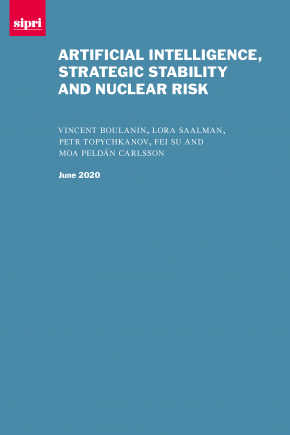Artificial Intelligence, Strategic Stability and Nuclear Risk

This report aims to offer the reader a concrete understanding of how the adoption of artificial intelligence (AI) by nuclear-armed states could have an impact on strategic stability and nuclear risk and how related challenges could be addressed at the policy level. The analysis builds on extensive data collection on the AI-related technical and strategic developments of nuclear-armed states. It also builds on the authors’ conclusions from a series of regional workshops that SIPRI organized in Sweden (on Euro-Atlantic dynamics), China (on East Asian dynamics) and Sri Lanka (on South Asian dynamics), as well as a transregional workshop in New York. At these workshops, AI experts, scholars and practitioners who work on arms control, nuclear strategy and regional security had the opportunity to discuss why and how the adoption of AI capabilities by nuclear-armed states could have an impact on strategic stability and nuclear risk within or among regions.
1. Introduction
2. Understanding the AI renaissance and its impact on nuclear weapons and related systems
3. AI and the military modernization plans of nuclear-armed states
4. The positive and negative impacts of AI on strategic stability and nuclear risk
5. Mitigating the negative impacts of AI on strategic stability and nuclear risk
6. Conclusions




